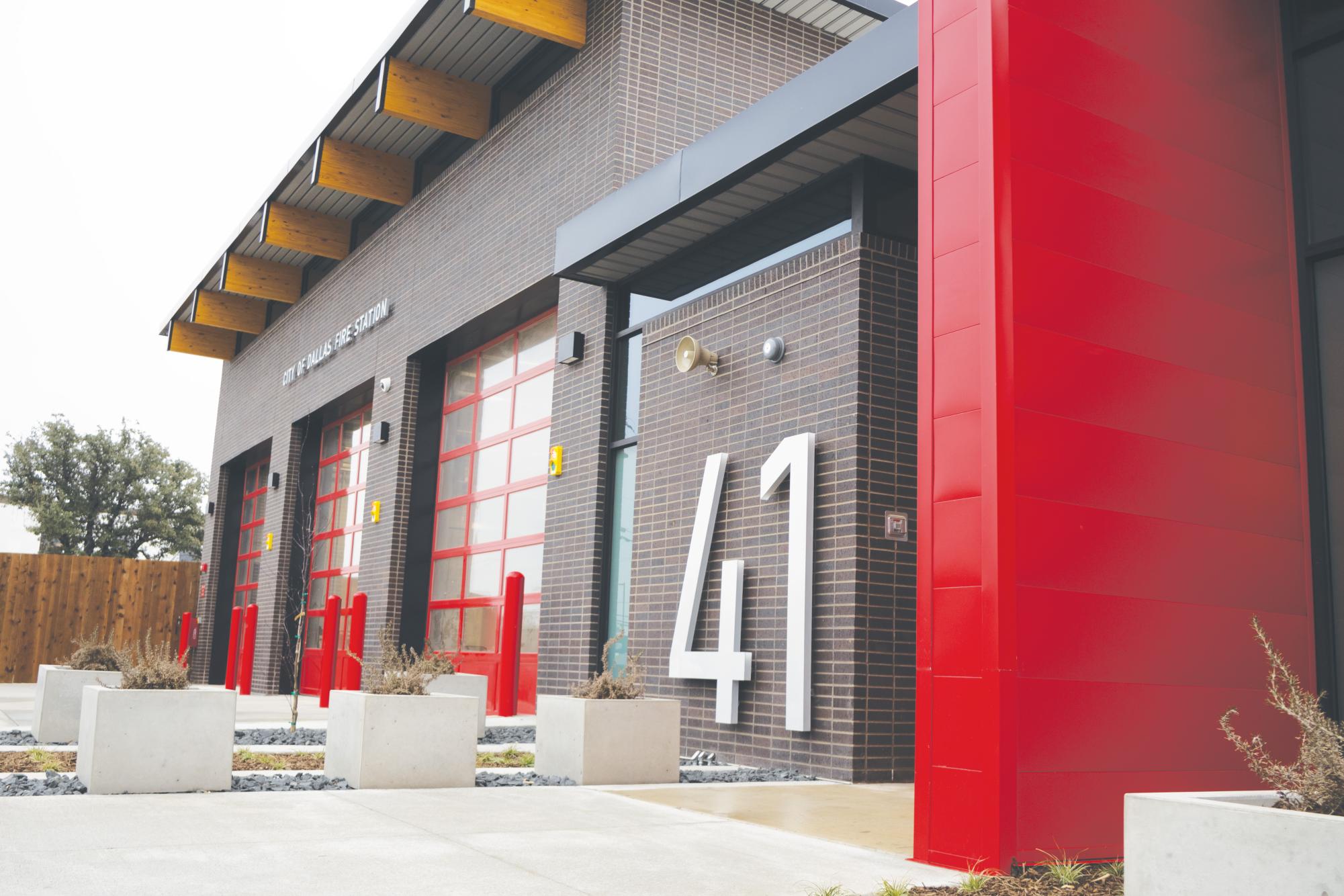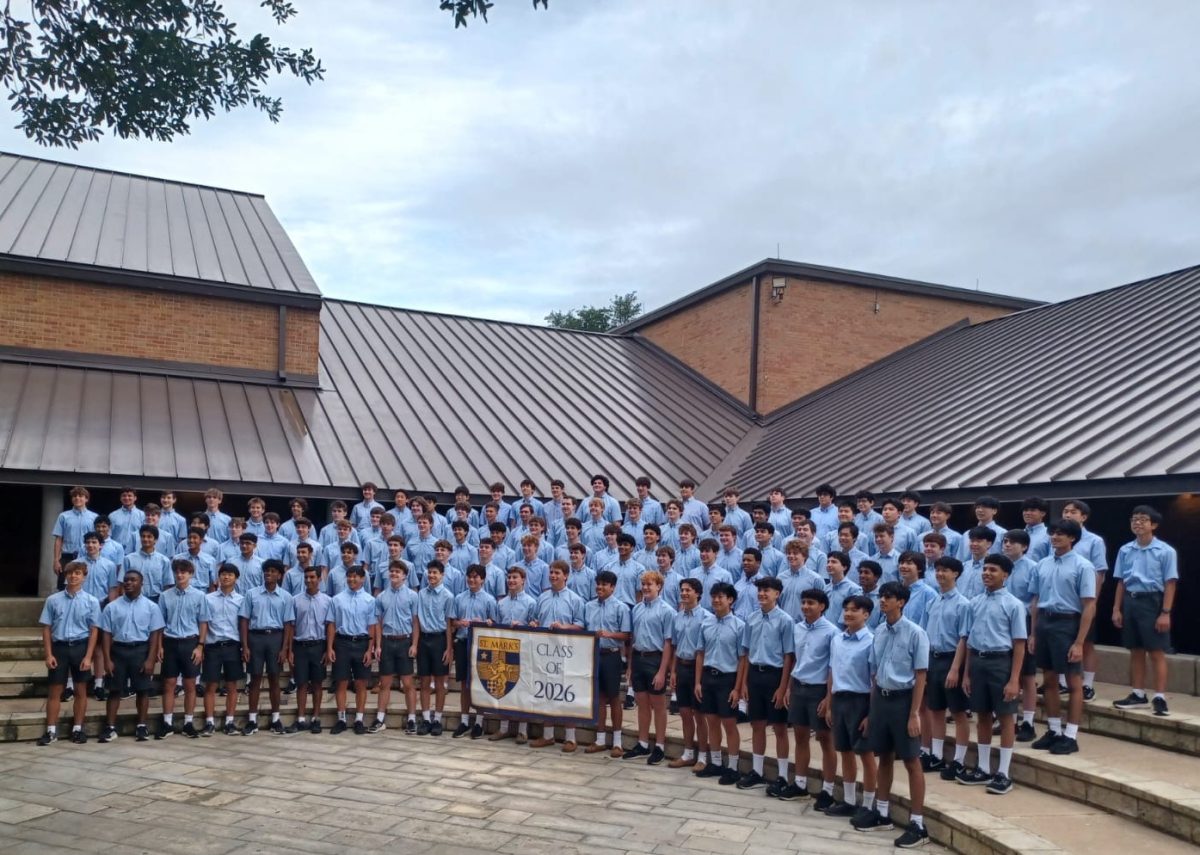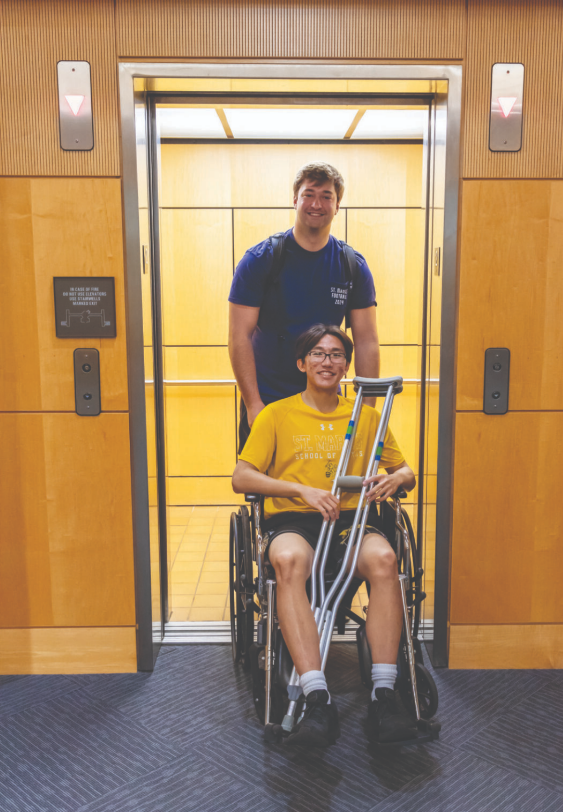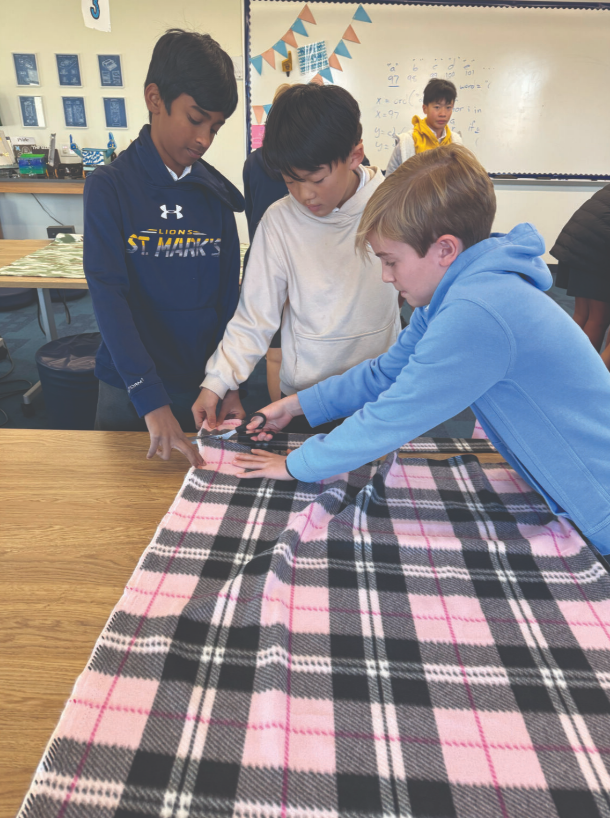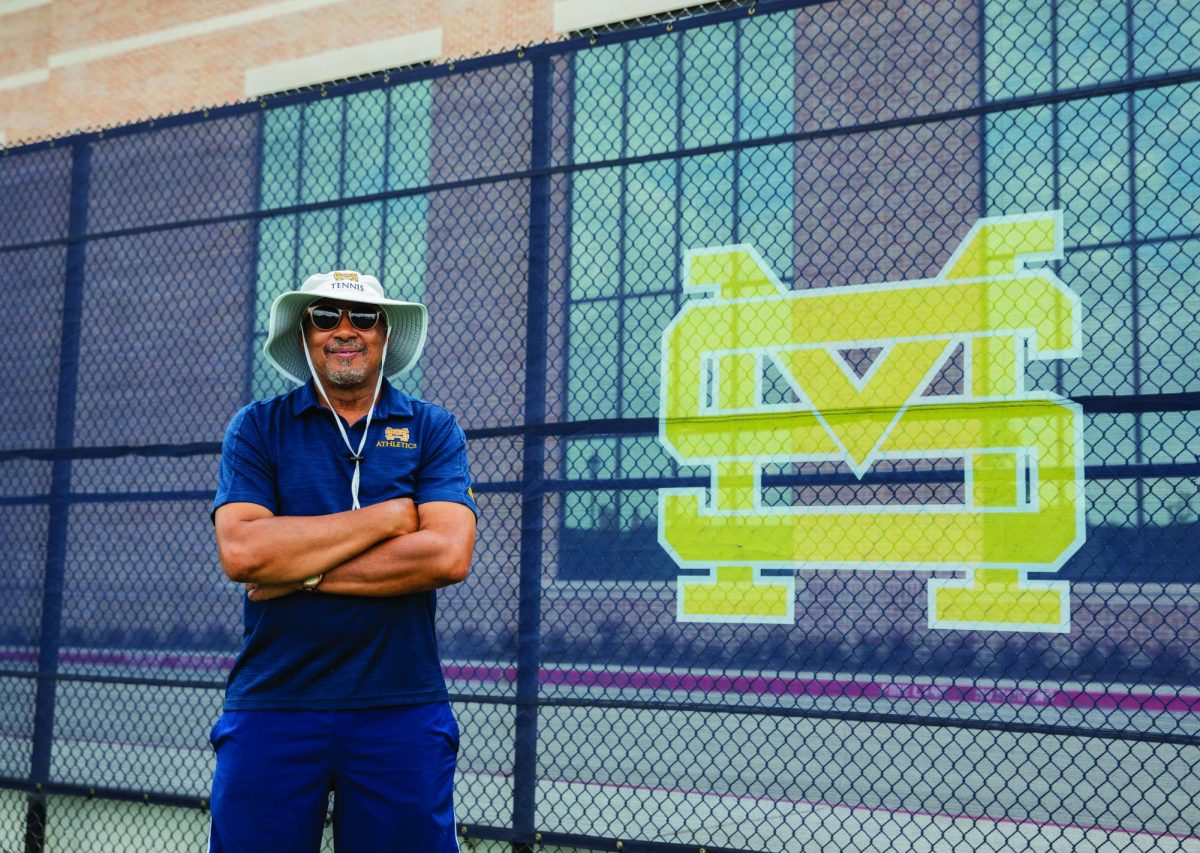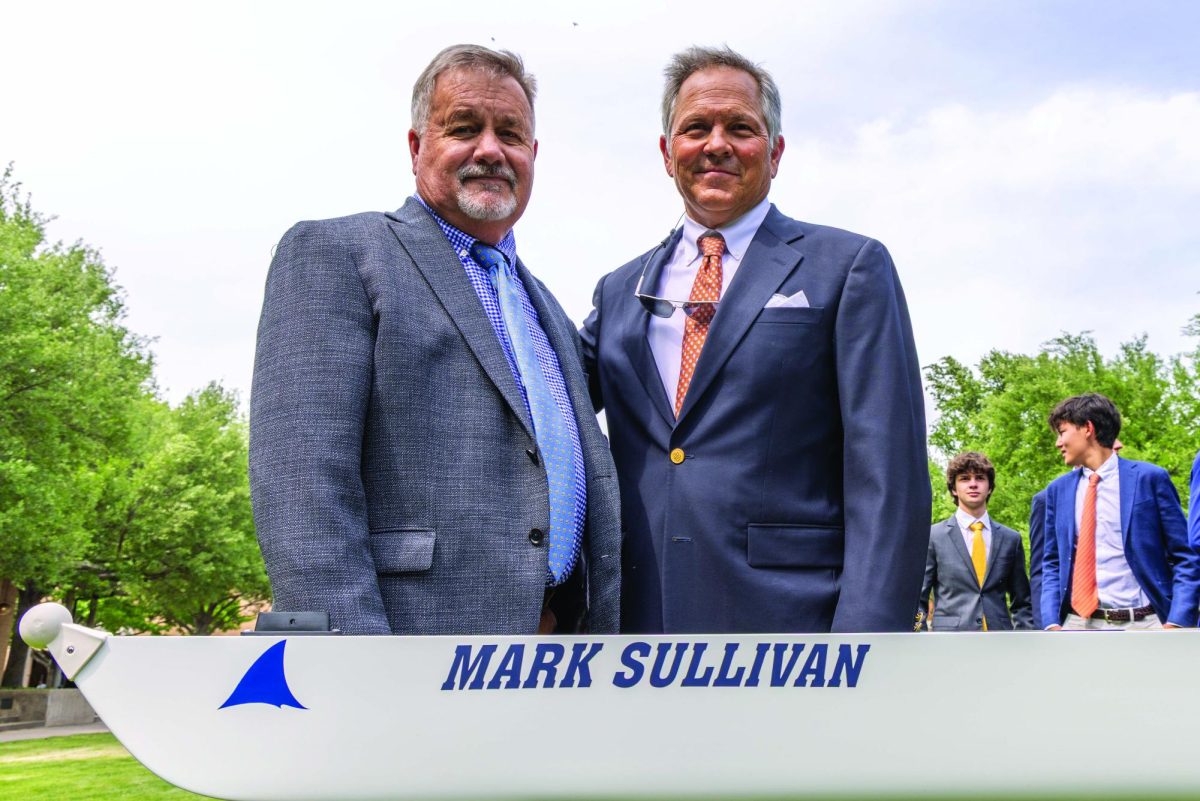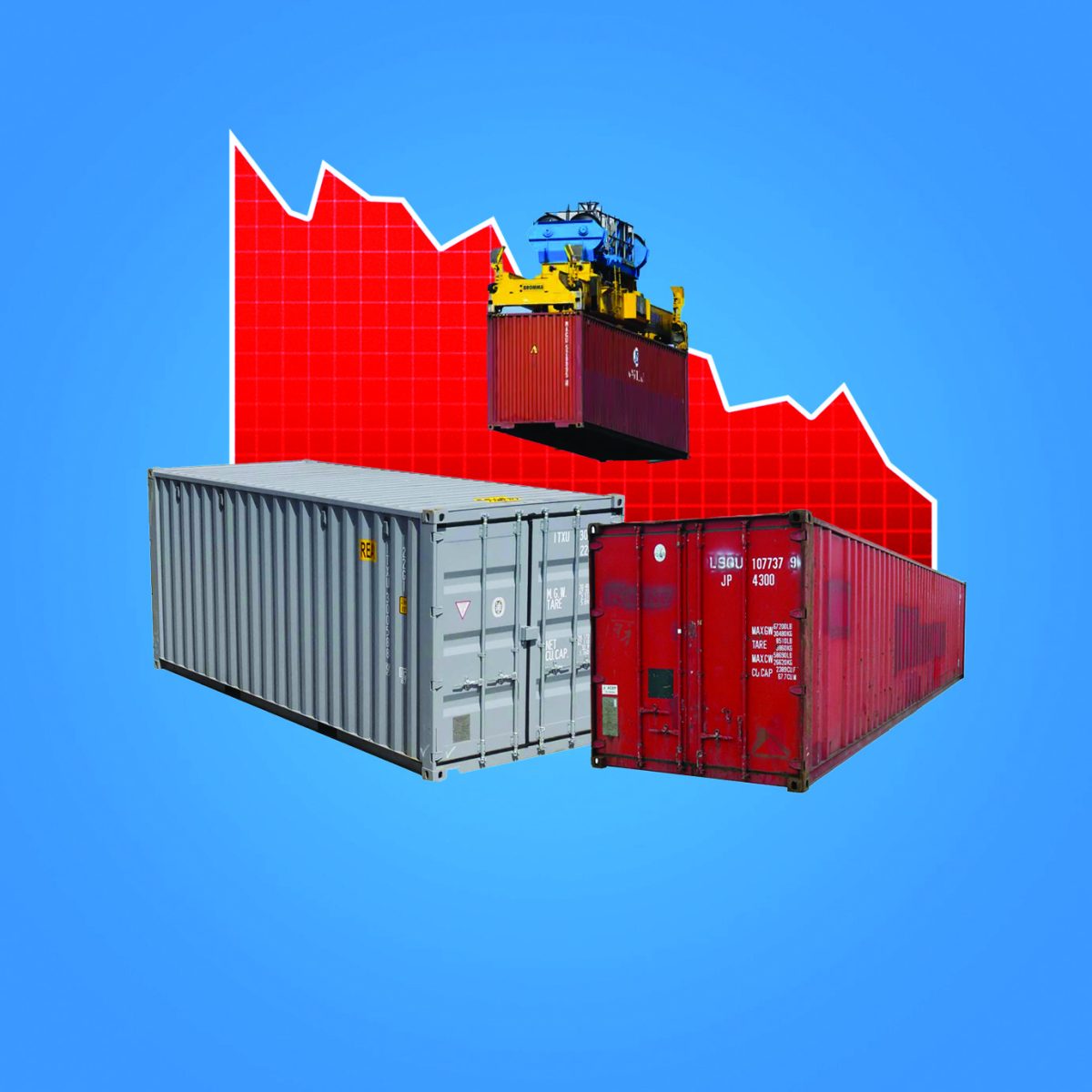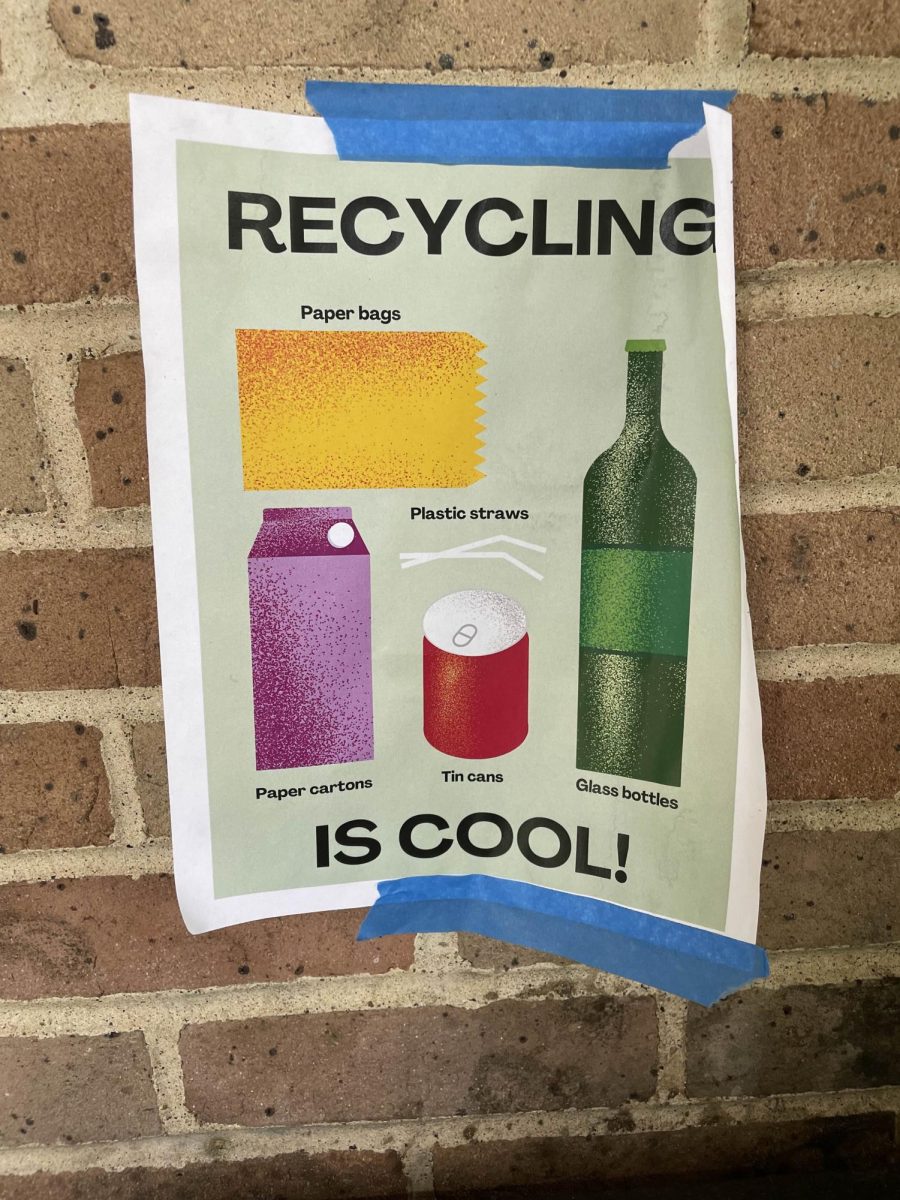They moved swiftly past the old iron-gray squat rack in the bay towards the lone ladder truck. The fire engine had just left on a damage call out west to respond to the tornado. Now they had just been toned out to do the same.
“Head west. We have tornado damage. We have injuries.”
It was a massive tornado. EF-3. Touched down and moving fast across Dallas.
The firefighters hopped in and slammed the truck door shut — taking seats next to the Station 41 headless horseman decal on the window. Other headless horsemen stared at the firefighters from the other decals and banners around the bay — he’s the Station 41 mascot after all. The wind howled outside.
Bricks. Wood. Concrete. Crumbling — crashing down. The wind shrieked around them.
Electricity cut. Lights out. Glass and debris everywhere.
The wind lifted the almost 40,000-pound truck slightly off the ground.
Everything was everywhere around the truck. On its roof too.
They were stuck inside.
By the time the firefighters radioed for help and got out of the truck — the tornado was long gone. So was the roof.
It had flipped over the building. Well, actually, without a roof, Station 41 wasn’t much of a building anymore. All that was left covering the two-and-a-half bays were a few 61-year-old structural beams.
Bricks and wood lay in heaps everywhere. The ladder truck wasn’t horribly damaged — but the ladder on the top of the truck was bent.
The firefighters’ cars, though, were a different story.
By sunrise, all their cars were in shaded parking spots, courtesy of the Station 41 roof.
A side-view mirror lay hanging over the shattered glass on the ground from the side of a pickup, its ceiling caved in from the weight of a metal pipe. Back windows gone, ceilings dented, other cars in the lot took up the weight of the station’s roof. Bricks. Wood. Concrete. Everywhere.
Rubble lay scattered around the tables and chairs. Bits of wooden ceiling panel hung from the remains of the roof. Trees limbs peeked into whatever was left of Station 41. It seemed like all was lost.
But it wasn’t.
The old squat rack and rusting weights lay where they were before. The original lettering outside the station spelling out “Fire Station 41” over the middle bay was saved. A plaque with the names of all the retired firefighters who had served at 41 was salvaged.
And above all the wreckage, above all the debris, above all the ruin, the headless horseman of 41 was still standing, ready to fight another battle.
Only a couple hours earlier, it was a typical Sunday night. Only hours prior, tired parents played mahjong, enjoying the last bits of bliss the weekend provided before the work week the next day. Under the light shower of rainfall, procrastinating students performed their weekly ritual of avoiding calculus homework, promising to just watch a little tiny bit of Netflix and YouTube. Security guards went about their nightly routines, rotating golf carts and patrolling campus.
And for the firefighters at Dallas Fire Station 27, the story was much of the same.
Like any other Sunday night, they put on the Cowboys game in the kitchen.
Like any other Sunday night, they talked and laughed as they watched Brett Maher’s 65-yard kick off for a touchback.
But unlike any other Sunday night, their captain came barging in.
“Man, there’s a tornado! It’s a tornado! It’s on the ground! It’s coming this way!”
The firefighters didn’t believe him. More than half of the time, tornado warnings are false alarms.
But before they can even get words out to react, the broadcast of the first six-yard play is replaced by WFAA Channel 8 News. In big, bold, red text are the words: “Emergency: Tornado touchdown nearby. Take cover immediately.”
The weatherman confirms the news. He details the tornado’s flight path, and issues a stern warning to stay indoors and under firm structure.
But before he can even finish his sentence, the bells rang. They were getting toned out, and the firefighters were already out the bay.
Under a greenish sky, the engine flew west through the rushing wind down Northwest Highway, taking a right at Harry Hines.
A tornado siren was ripped out of the ground, blocking their path — they had to go through the AutoZone parking lot to get past.
Power lines were downed. Motels destroyed. Bars had their roofs torn clean off.
Apocalyptic.
There was no sleep that night. Instead of witnessing the Cowboys’ 37-10 victory, they spent the night and morning knocking on people’s doors.
“You guys alright? Is anyone hurt? Is the gas leaking?”
Two command posts were set up — one on Harry Hines and the other on Marsh and Walnut Hill. Thirteen other fire departments came out to help provide mutual aid.
More than 400 first responders were armed with pens and a clipboard, knocking every door and ringing every bell. Flashlights pointed everywhere, they cleared each house in four to five minutes and moved quickly onto the next.
Some answered the door clutching their pets. One man in his 70s came out pointing his hogleg western-looking revolver at the door as he opened it. A yellow and white DART bus lay overturned on the sidewalk, blinkers still flashing. The driver stood outside, looking at the wreckage.
Apocalyptic.
But thankfully, they all said the same thing.
“Yeah we’re fine. Nobody’s hurt.”
As the firefighters continued triaging, the sun climbed slowly up the sky, casting shadows over all the fallen trees and buildings. They continued on, street after street, knocking every door and ringing every bell. They continued on for ten hours — straight through the next morning.
Seven injuries were recorded that night. And thankfully, there were no deaths.
Still, more than 900 buildings were damaged. Trees were scattered over roads. Wood, rubble, concrete — everywhere.
Schools — gone. Churches — gone. Places called “home” — all gone in mere seconds.
But all that could be done was to band together and pick up the pieces. All that could be done was to try to continue life as it had been.
For everyone in the area, the next few months were about trying to find some sort of normalcy beneath the rubble. And for the firefighters, the work was no different.
The two command posts were taken down. New routes had to be memorized to avoid roads blocked by trees and powerlines. Hazardous Materials teams worked on gas leaks.
But really, like everyone else in the area, life as firefighters returned pretty much to normal — responding to calls, heating up the grill for some truck burgers and having their morning coffee. Almost everything was back to how it was.
Only — the headless horsemen of 41 no longer had a firehouse. Soon after the building was decommissioned, they were no longer the headless horsemen of 41. They split apart, assigned to different stations.
Torn from their home.
But even with shattered power lines, and even with the tornado’s nigh on irreplaceable damage, and even with the hollow destroyed, signs of rebounding were already underway.
First responders began clearing up debris. Volunteers began fundraising to help the most affected. And, the morning after the tornado, Lt. Nelson Rossy began work on rebuilding the station.
It’s his ninth major firehouse project. It’s also his ninth year working as the facility planning coordinator for Dallas Fire-Rescue, where he makes sure every single one of the 59 stations runs smoothly without any maintenance issues — all by himself.
“Every day, you’re running out and putting out little fires here and there,” Rossy said.
But when he came to Dallas, he never thought he’d be a first responder. After all, he’d gotten his degree in accounting. He loved solving problems and dealing with numbers. But Rossy needed a job — and at one of Dallas Fire-Rescue’s job fairs — firefighting seemed like it might be good fit.
It certainly turned out to be a good fit, though. He’s stayed with Dallas Fire-Rescue for the past 29 years, working as a first responder and for the first responders.
Like any other firefighter, he’s seen crazy things — from the savage struggle overdosers put up as soon as the naloxone brings them back to hot tar landing on his helmet. Like any other firefighter, he loved fighting fires on the front line — everything from holding the nozzle steady as it spewed hundreds upon hundreds of gallons of water at the burning building to going up the ladder truck to cut a hole in the roof to ventilate. And like any other firefighter, he knows that each one of them calls their firehouse “home”.
So for the past four years, Fire Station 41 has been on his radar in one way or another — the demolition of whatever was left of the old station, the design of the new facility, and the work to put up the temporary one.
Though he is the facility planning coordinator, much of the process has been out of his hands. Insurance had to kick in, the site needed to be evaluated and everything had to go through the city’s internal processes.
But once the temporary fire station — basically a big tent to house the truck and a trailer to house the firefighters — was finally set up, after years of delays blamed by the city on various shortages, permitting issues and COVID, the headless horsemen were finally back together.
They operated in four-man shifts. But even for just four men that trailer was small.
“How are we going to live in that thing?”
But once they got used to the cramped trailer, they had a rodeo of a time. Every morning, when they would change shifts at 7 a.m., they would have coffee together with the next group of guys, joking around and just loving it.
“What are we gonna cook today? Or are we gonna go out to eat?”
And like always, when the bells hit, they would mentally switch gears and rush to the fire engine to make their run. Just as they always had.
But even though they were back together, they were still missing one part — a real, permanent firehouse.
As construction began, funding for the firehouse covered basically everything — a tornado safe room, customized wooden furniture with the Dallas Fire-Rescue logo, and a transition zone to make sure no carcinogens enter the firehouse after a call.
There were, however, a few things the funding couldn’t cover to help complete the fire station, and Rossy reached out to Eugene McDermott Headmaster David Dini. Recognizing the potential for the school to help with the new fire station, Dini exchanged emails with Rossy, discussing ways to get involved and eventually inviting Rossy to campus.
Wandering around the school with Rossy, Dini showed him the makerspace and all the tools in it — the miter saw, the laser cutter, the CNC mill.
“What if we built a plaque here as a gift to the station?”
And after a discussion with Makerspace Director Stewart Mayer, a 5-foot tall plaque was set to be cut and engraved with Rossy’s own wording for the dedication of the building.
They started exploring other parts of campus. Rossy had heard that the school had a choir.
“We have a dedication ceremony when we reopen, and I was thinking the choir could sing the National Anthem.”
For Dini, it was an done deal. They wandered into the chapel where the Upper School Choir happened to be rehearsing. After being introduced to Rossy, choirmaster Tinsley Silcox asked if he wanted to hear the National Anthem right then and there.
Rossy asked if he could video it. And the choir began to sing.
“O say, can you see, by the dawn’s early light, What so proudly we hailed…”
Dini could see it was moving to Rossy.
The way the chords fit together. The dynamic swells. The harmony.
And in that moment, Dini envisioned it all as he stood there, already fast forwarding to the dedication ceremony.
“That moment felt like divine providence,” Dini said. “Just walking into the chapel and having that happen at just the right time only happens once in a while. Everything fell into place just right.”
Firefighting isn’t about the Sunday night football at the station or driving the engine around the city. It’s about saving lives.
And for most first responders, it’s the gratitude they get for their work that keeps them coming back.
When the local pizza shop never hesitates to give the first responders free New York-style pizza — it means a lot.
When they’re out for lunch and the guy sitting at the table in the corner pays for them — it means a lot.
When the family of the older man who had a heart attack comes by the station with brownies and cookies a few days later — it means a lot.
To them — it’s all beautiful. For them — they’re just thankful.
And so even though it took four years, they’re just glad to be home.

